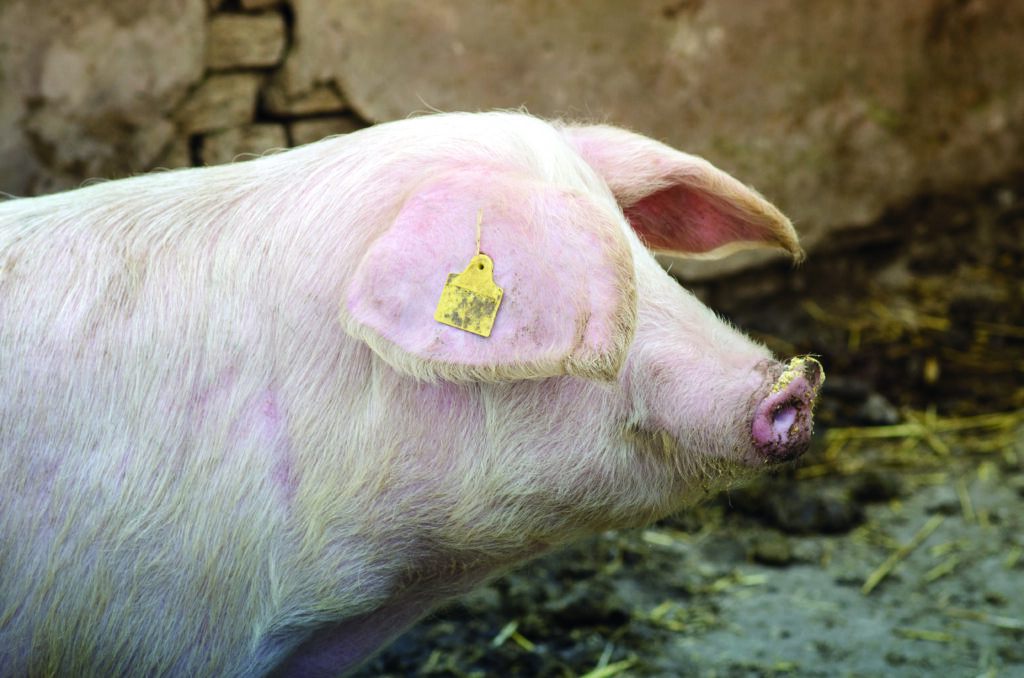A hard Brexit would reduce the value of EU pigmeat production by €2.3 billion according to a new report published by the European Livestock and Meat Trades Union (UECBV).
The same report also states that the threat to European meat producers, consumers and distributors posed by Brexit is potentially much greater than the impact felt across the EU by the 2014 Russian political embargo on EU agrifood exports.
The pigmeat price fall warning is based on the report’s findings that increased export costs, imposed by tariff barriers, customs and veterinary checks and increased transport charges, would reduce exports of pigmeat from the EU to the UK by up to 48%, alongside an 84% decline in EU-UK beef exports and a 76% fall in EU-UK sheepmeat exports.
This reduction in trade, it is further stated, will create a surplus of EU pigmeat and beef, affecting market prices and reducing the value of EU production of meat, leading in turn to a structural reduction in the EU pigmeat price of over 7%, with beef prices declining by over 8%.
“This price shock would reduce the value of EU production of beef by approximately €2.4 billion in the short run, and of pigmeat by over €2.3 billion,” states the report.
Overall, the 30-page analysis warns that by potentially cutting the EU off from one of its largest and highest value meat markets in Europe, Brexit threatens to be catastrophic for the meat industry across both Europe and the UK.
“In the worst case scenario, in which no deal between the EU and the UK is agreed, the impact on the meat sector will be monumental, due to the particular exposure of this sector to tariff costs, veterinary checks and increased customs and transport costs,” said UECBV President Philippe Borremans, adding that the report, carried out by Red Flag, confirmed his organisation’s ‘worst fears’ over Brexit.
“A Hard Brexit would send shock waves through the European meat industry, eliminating jobs, increasing consumer prices and destroying the livelihood of small business owners working in the meat sector,” he said. “The scale of this problem is too great to ignore, and we implore policymakers to recognise the catastrophic impact of a Hard Brexit for the meat sector, to follow through on the recommendations put forward in this report, and to protect this vital European sector.”
The Scottish Association of Meat Wholesalers (SAMW) said it welcomed UECBV’s input and would urge EU and UK negotiators alike to address the issues raised in the report.
“Our challenge to the UK and Scottish Governments is to pursue a plan which maximises the advantages and opportunities which will arise throughout the duration of the UK’s Brexit transition, and which establishes a production and business platform for post-EU Britain which will enable the industry to grow its domestic and export markets,” said a SAMW spokesperson.
In light of such issues, the report makes four key recommendations for politicians and negotiators to address:
• Ensure a timely and sufficiently-long transitional period to allow businesses to adjust to the new arrangements.
• Reach a future trading relationship that creates a minimum burden for businesses, especially SMEs, and maintains current arrangements as far as possible.
• Ensure regulatory convergence between the UK and the EU.
• Implement market support mechanisms to facilitate the transition for businesses in the meat industry, including increasing international market access, introducing a simplified sealed container system, approved consignor/ consignee status for transitors, and investment in port facilities.




